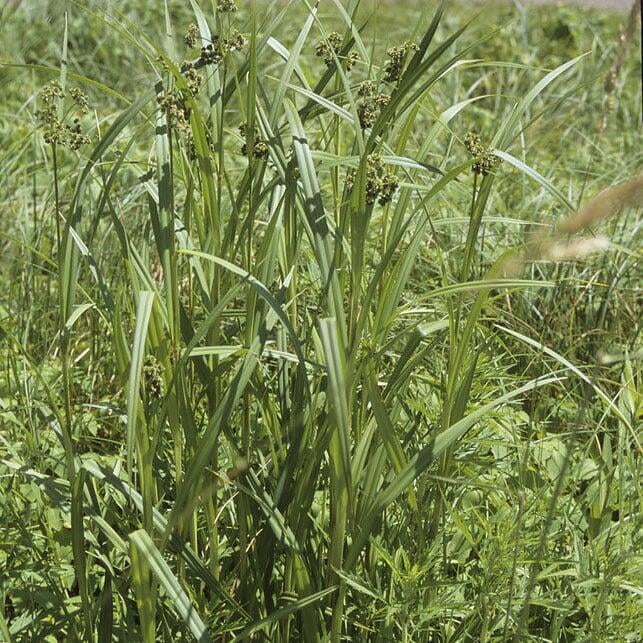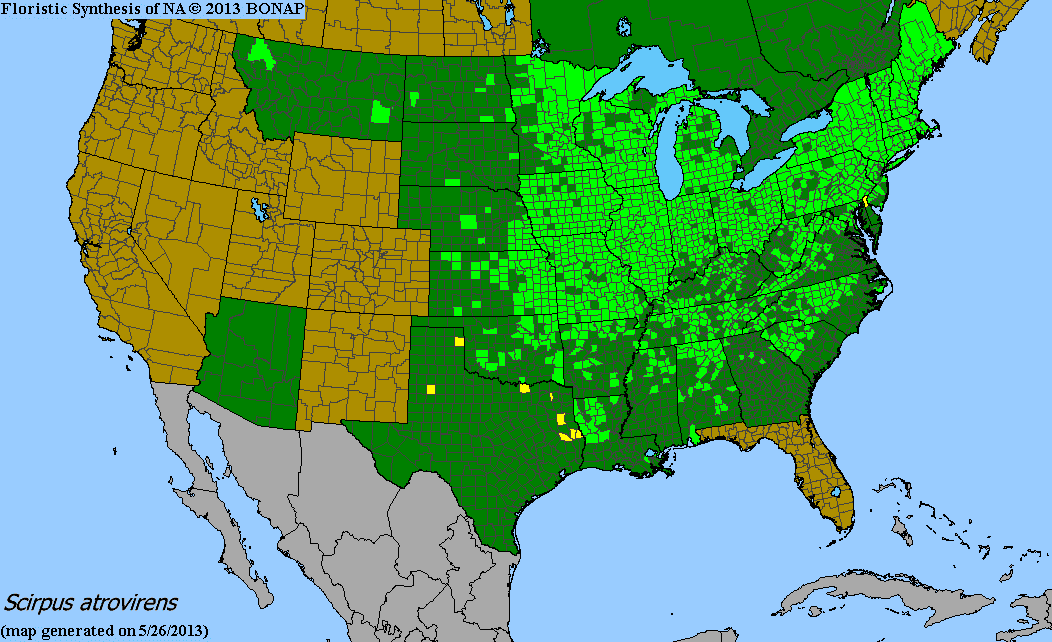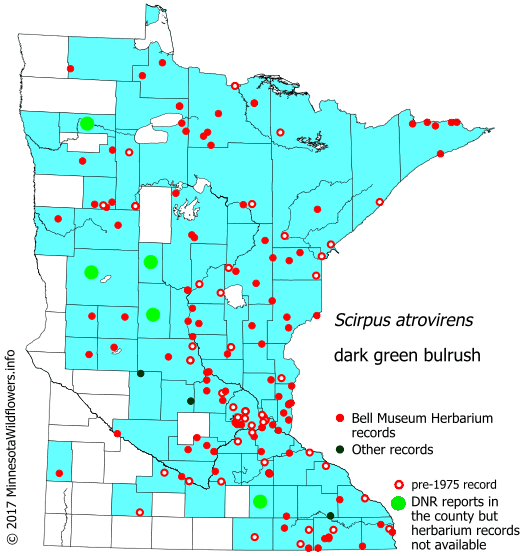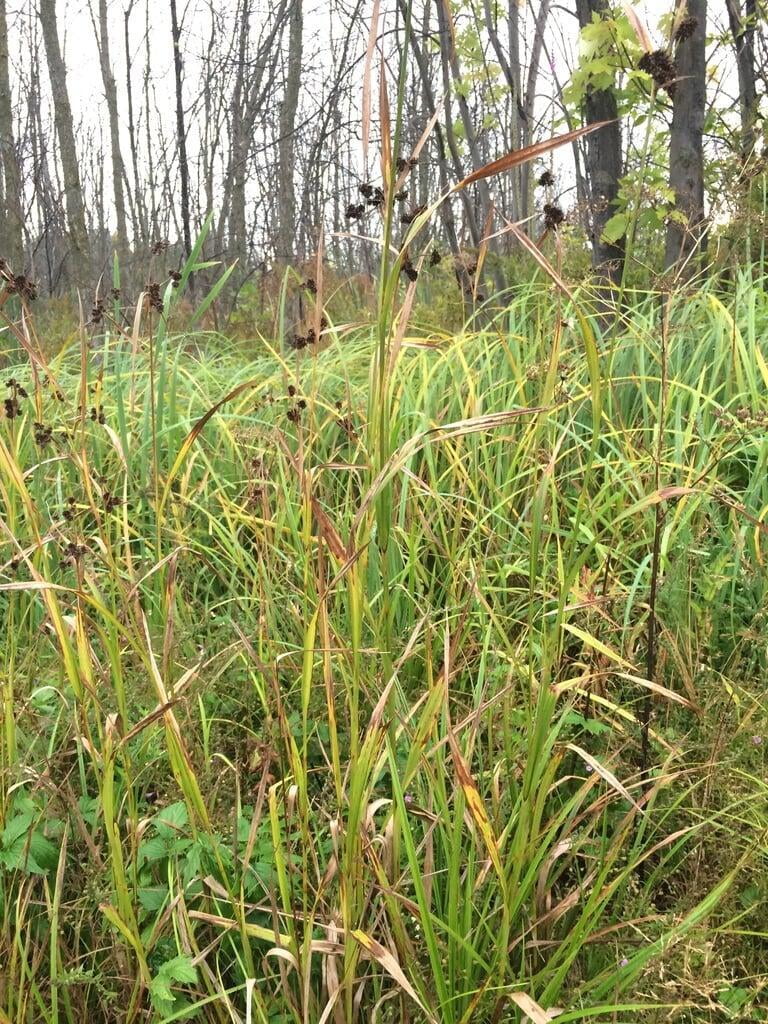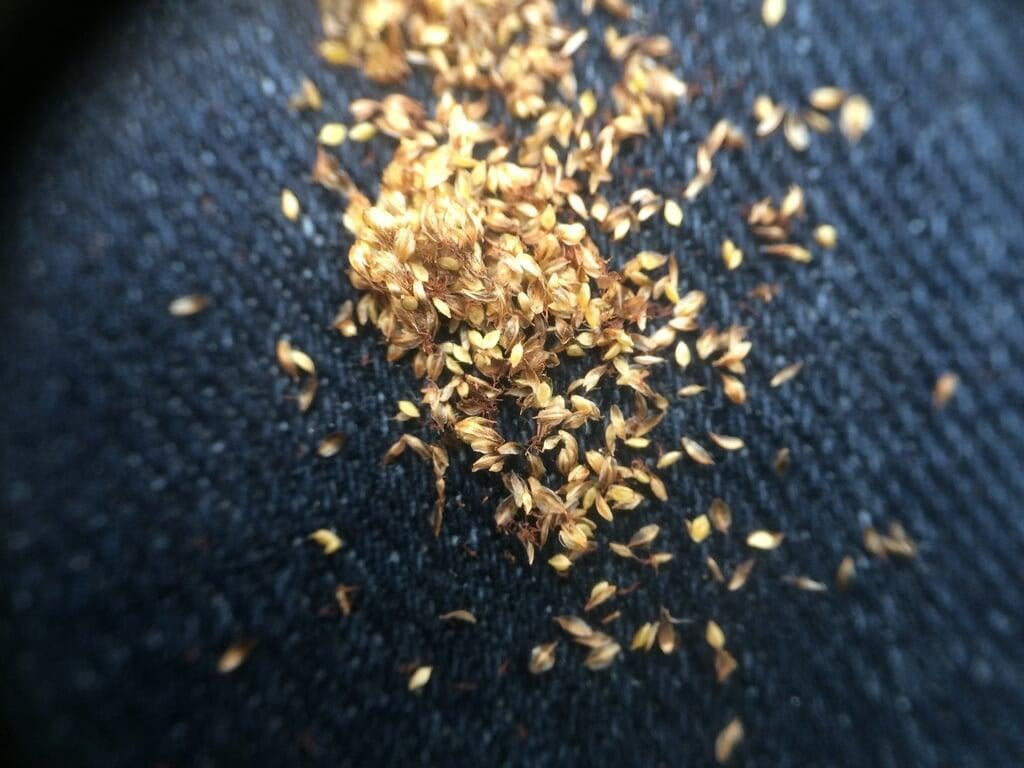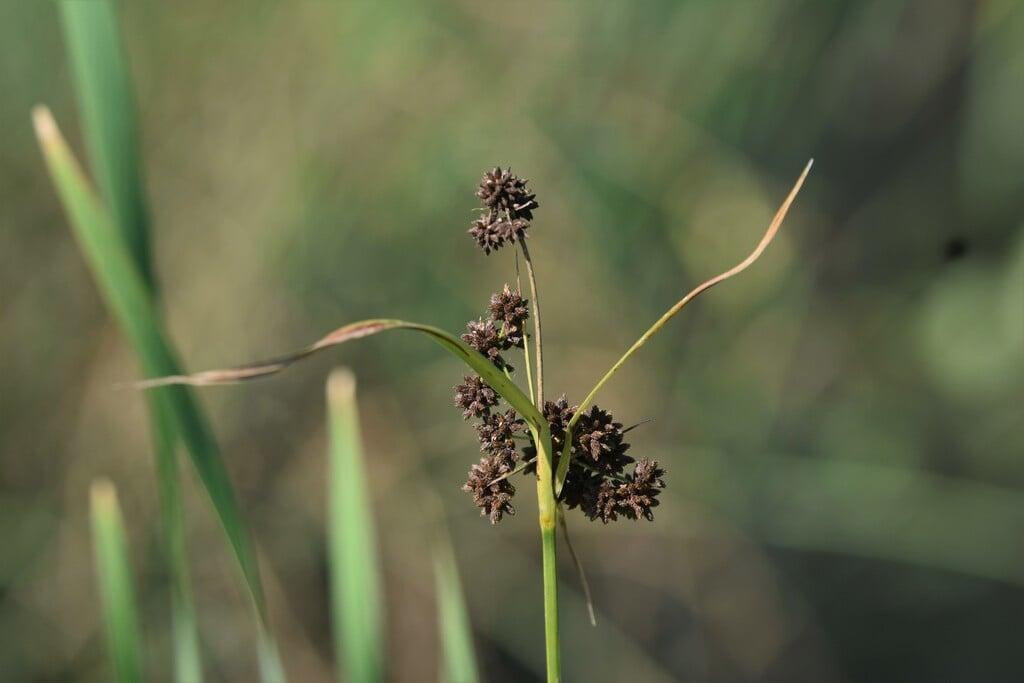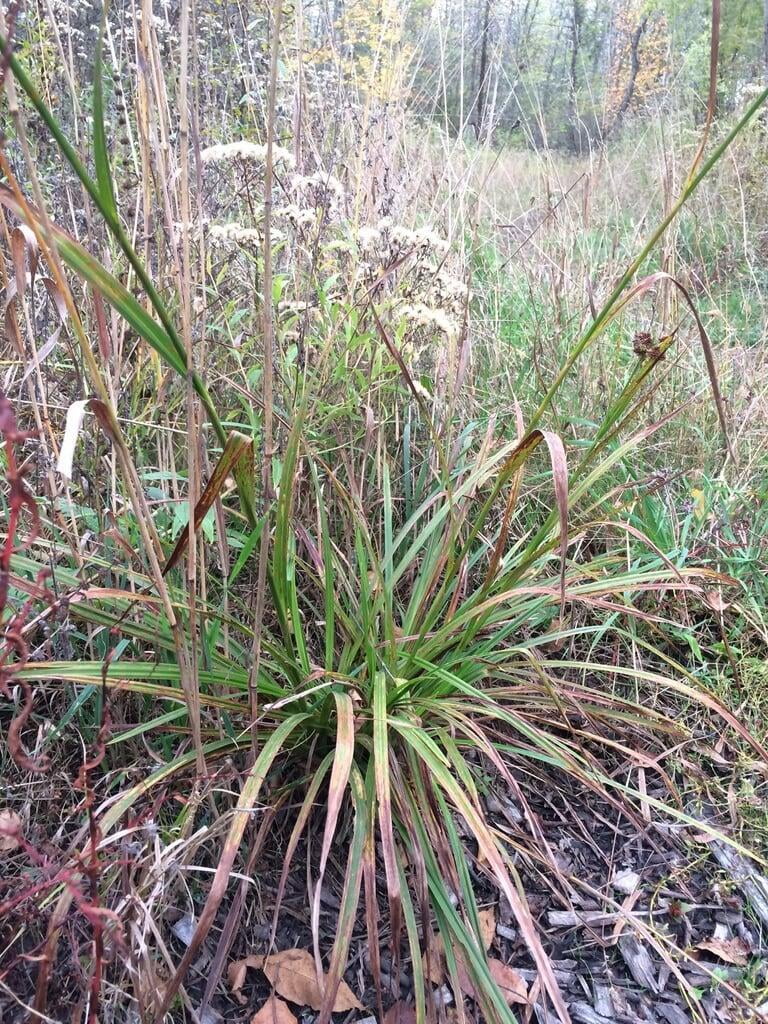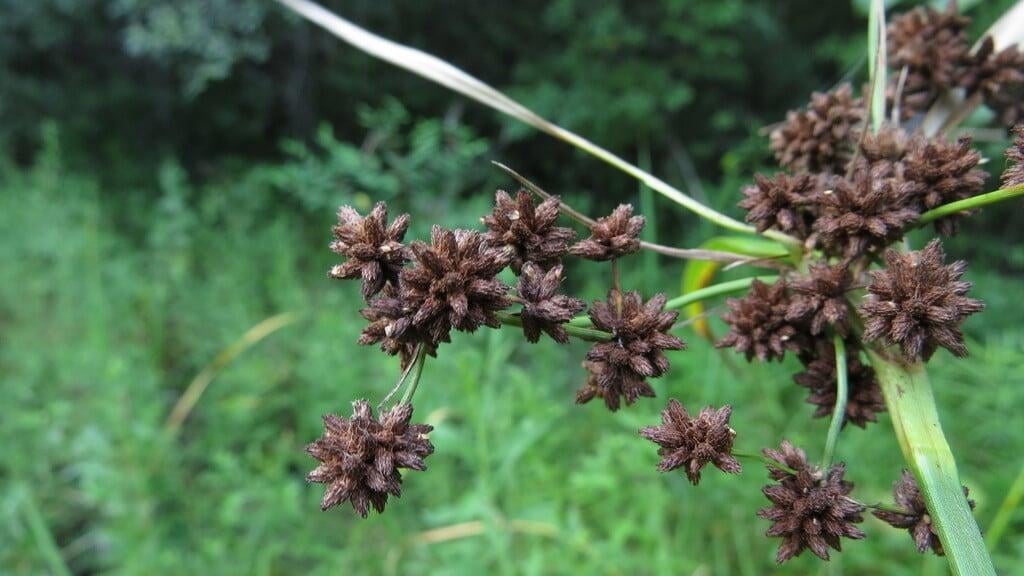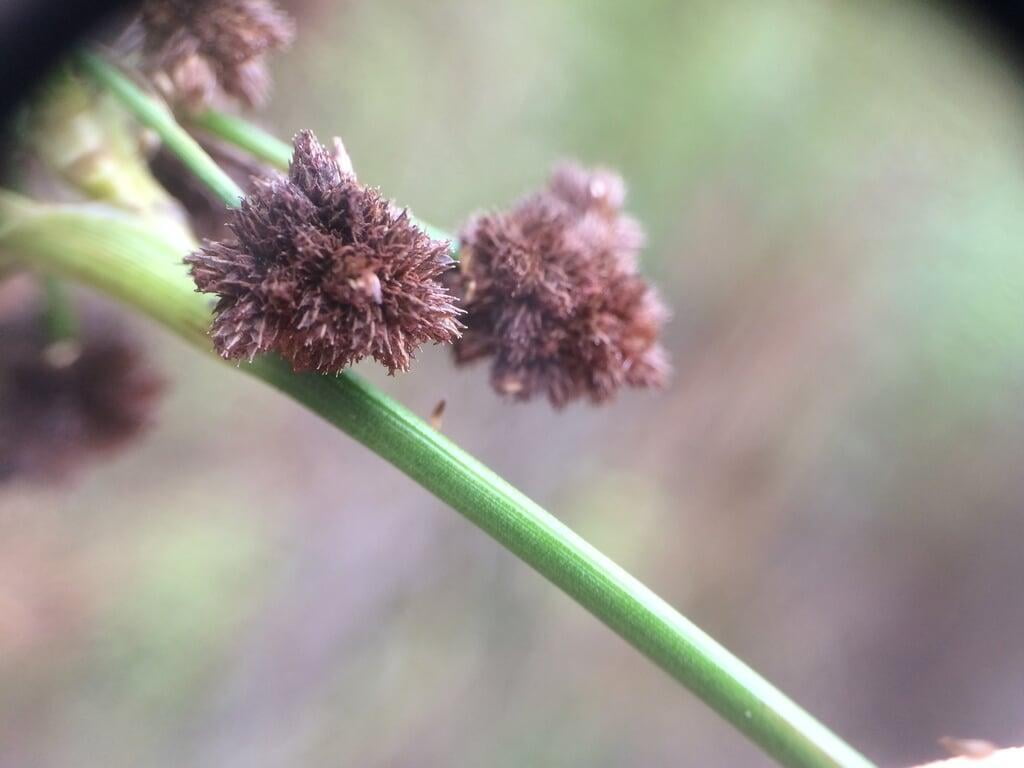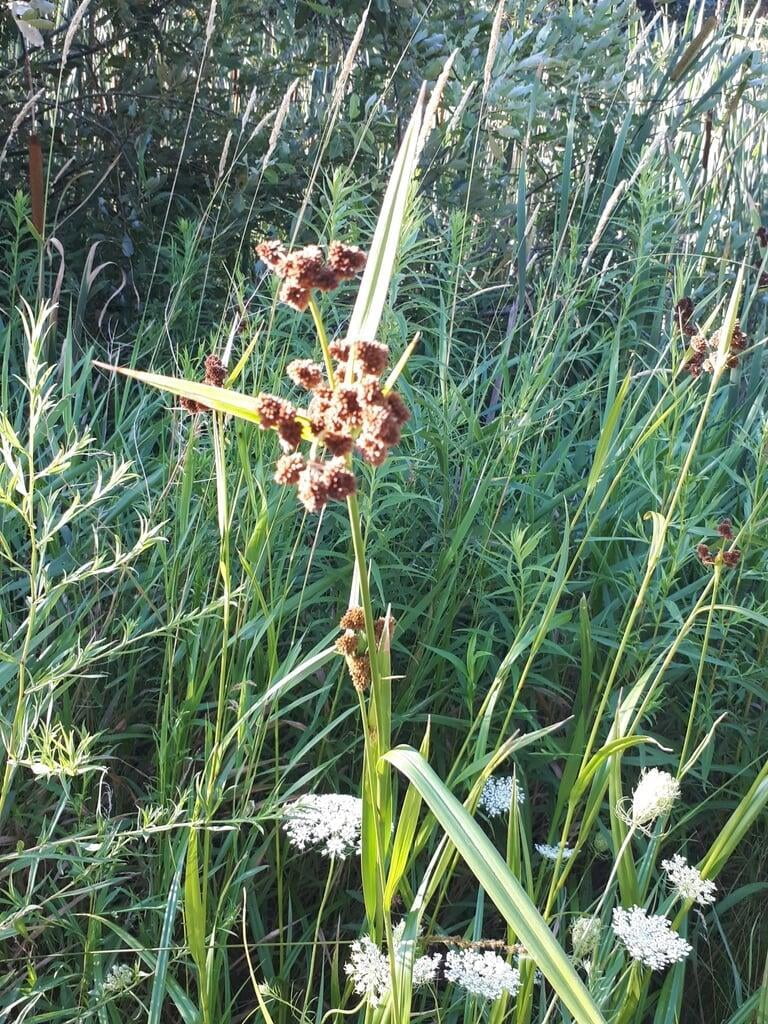Scirpus atrovirens
Green bulrush Description:
Scirpus atrovirens, commonly known as green bulrush, is a native wetland and aquatic plant species found throughout North America. The plant is an important species for wetland ecosystems, providing valuable habitat for wildlife and contributing to water quality improvement.
Green bulrush typically grows in dense clusters and can reach up to 5 feet in height. The plant has long, narrow leaves and produces cylindrical spikelets that bloom in late summer. Green bulrush is a highly adaptable species that can grow in a range of wetland and aquatic habitats, including marshes, ponds, and along riverbanks.
Scirpus atrovirens is an important species for habitat restoration and conservation efforts, as well as for erosion control and water quality improvement. The plant's extensive root system helps stabilize soils and prevent erosion, while its above-ground biomass provides cover and food for a variety of wildlife species.
Green bulrush is also valued for its aesthetic qualities, with its attractive foliage and architectural form making it an ideal species for water gardens and other aquatic landscapes. The plant is relatively low maintenance and can tolerate a range of water conditions.
Overall, Scirpus atrovirens is a versatile and important species with both ecological and aesthetic value. Its adaptability, habitat value, and erosion control properties make it a valuable addition to wetland and aquatic ecosystems.
Native Range:
Green bulrush is most commonly found in the central and Eastern United States.
Standard Plant Information:
Plant height: 3' - 5'
Fruiting time: July - August
Preferred habitat: Does well in part shade to full sun. Often found in lakes, ponds, sloughs, wet ditches, wet fields, marshes, and swamps.
Sowing:
For most homeowners, the best option is to scatter seed on the ground by hand broadcasting at a minimum of 15-16 pls lbs per acre. For even coverage, we recommend that you broadcast seed in perpendicular rows across the site to ensure even coverage.
Planting:
Simply dig a hole in the soil slightly larger than the plant’s roots. Ensure that the soil line of the plant is maintained during the transfer (i.e. the plant should be at the same level with the ground as it was in the pot). Pack any loose dirt back around the plant and make sure you water it well the same day to ensure it has the best chance of survival.

